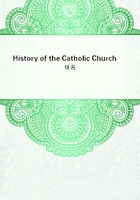
第166章
It would, however, be far from the truth to assert that everything was faultless during the years preceding the Reformation, or that all the clergy were as perfect as they might have been. England, like every other country at the same period, was afflicted with the terrible evils resulting from the appropriation of parishes by laymen and by religious establishments, a system which made it impossible for a bishop to govern his diocese properly, from the non-residence of both bishops and higher clergy, and from the plurality of benefices, which meant that a person might be permitted to hold two or more benefices to which the care of souls was attached, thereby rending impossible the proper discharge of pastoral duties. More priests, too, were ordained than could be provided with appointments, and consequently many of the clergy were forced to act as chaplains and tutors in private families, where they were treated as servants rather than as equals, and where it was only too easy for them to lose the sense of respect for their dignity and for themselves, and to sink to the level of those with whom they were obliged to consort. It is not to be wondered at if evidence is forthcoming that in particular cases, more especially in Wales, clerical celibacy was not observed as it should have been, or that in several instances the duty of preaching and instructing the people was not discharged, nor is it surprising to find that men who were comparatively unlearned were promoted over the heads of their more educated companions to the disgust of the universities and of those interested in the better education of the clergy. Considering the fact that so many of the bishops were engaged in the service of the State to the neglect of their duties in their dioceses, and bearing also in mind the selfish use made too frequently of the rights of lay patronage and the disorganisation to which even the most enlightened use of such patronage was likely to lead, it is little less than marvellous that the great body of the clergy were as educated, zealous, and irreproachable as they can be proved to have been.
As a result of the disorganisation wrought by the Black Plague, the civil strife which disturbed the peace of the country, and the constant interference of the crown and lay patrons, many of the religious houses, influenced to some extent by the general spirit of laxity peculiar to the age, fell far short of the standard of severity and discipline that had been set in better days. While on the one hand it should be admitted freely that some of the monastic and conventual establishments stood in urgent need of reform, there is, on the other side, no sufficient evidence to support the wild charges of wholesale corruption and immorality levelled against the monks and nuns of England by those who thirsted for their destruction. The main foundation for such an accusation is to be sought for in the letters and reports (/Comperta/) of the commissioners sent out to examine into the condition of the monasteries and convents in 1535. Even if these documents could be relied upon as perfectly trustworthy they affect only a very small percentage of the religious houses, since not more than one-third of these establishments were visited by the commissioners during their hurried tour through the country, and as regards the houses visited serious crimes were preferred against at most two hundred and fifty monks and nuns.
But there are many solid grounds for rejecting the reliability of these documents. The commissioners were appointed by Cromwell with the professed object of preparing the public mind for the suppression of the monasteries and convents. They showed themselves to be his most obsequious agents, always ready to accept as testimony popular rumours and suspicions founded in many cases on personal dislikes, and, like their master, more anxious to extract money bribes from the religious than to arrive at the truth about their lives or the condition of their establishments. That they were prejudiced witnesses, arrogant and cruel towards the monks and nuns, and willing to do anything that might win them the approval of Cromwell and the king is evident from their own letters and reports, while if we are to credit the statements of contemporaries, backed by a tradition, which survived for centuries amongst the Catholic body in England, they were most unscrupulous and immoral in their attitude towards the unfortunate nuns who were placed at their mercy. Indeed the charges which they make are so filthy and repulsive, and the delight with which they revel in such abominations is so apparent, that one is forced to the conviction that they must have been men of depraved tastes quite capable of committing or of attempting to commit the crimes laid to their charge. Even if it had been otherwise, had the two commissioners been unprejudiced and fair in their proceedings, it is impossible to understand how they could have had an opportunity of making a really searching investigation into the condition of the monasteries and convents during the short time assigned for the work. They began only in July 1535 and their work was completed in February 1536.